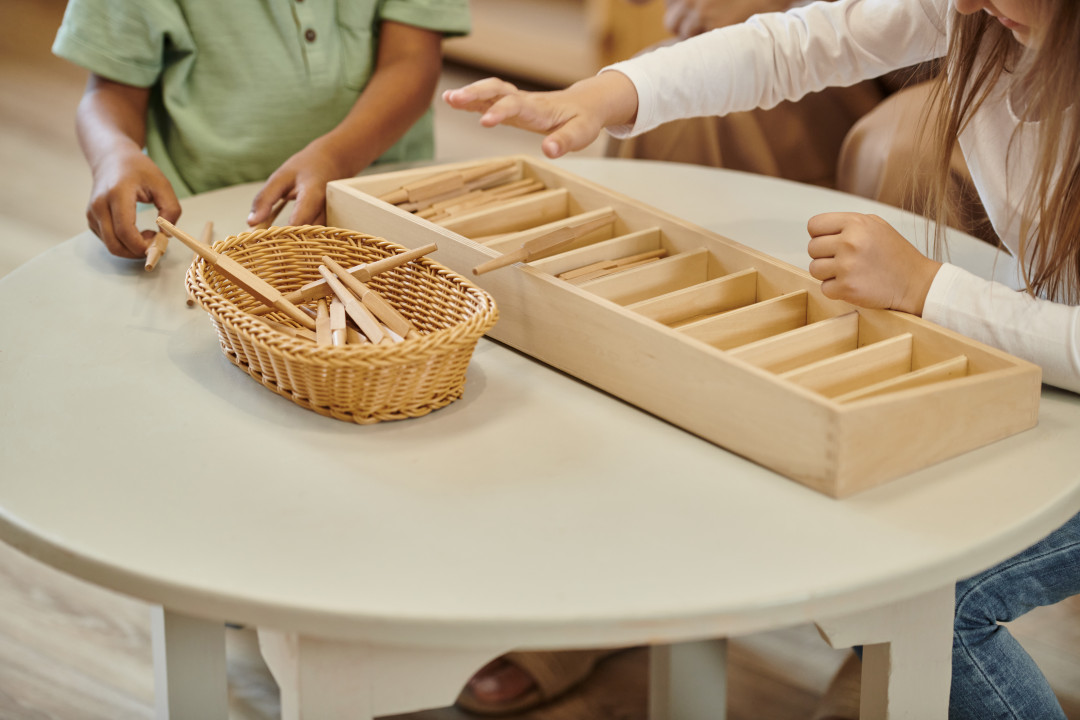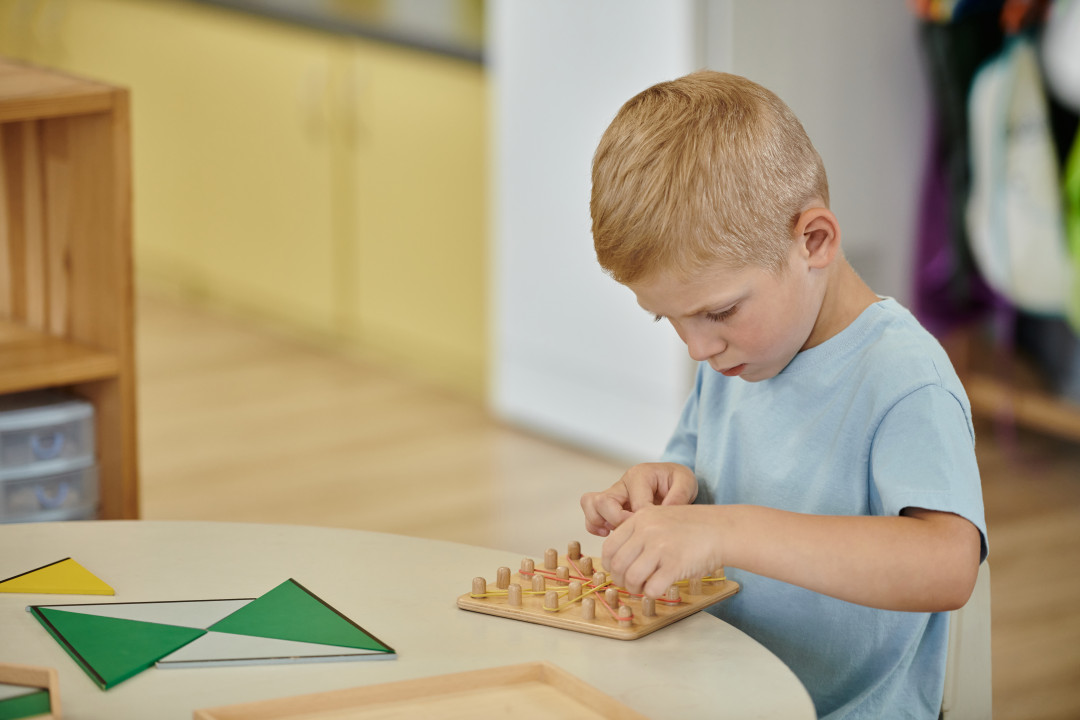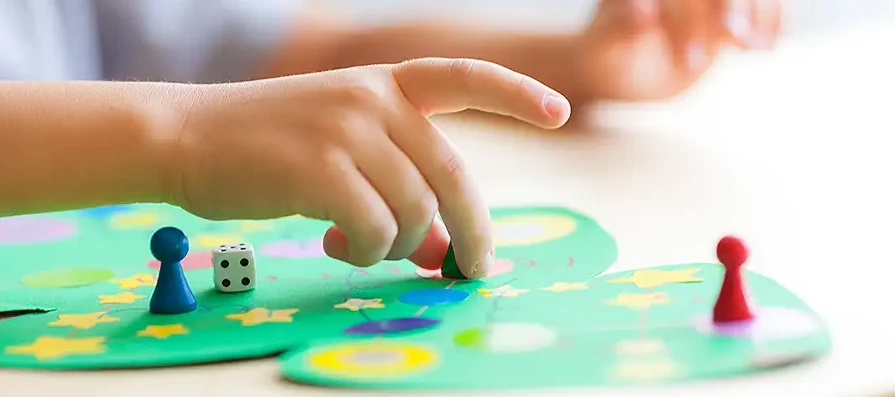Sub total: 0.00 BGN (0.00 €)
Have you ever thought about how much time children, of almost every age, spend in front of screens today? Do you remember your games outside or those of your parents? Do you remember how much fun they were, how they made us laugh, spend time together, and come up with new variations of them?
In the digital age, phones and tablets are often replacing active shared play, and this necessarily impacts child development. More and more parents are relying on technology to engage their children's minds and 'earn' some time for themselves. Unfortunately, however, they often forget the importance of interacting with real objects made up of different parts that stimulate their brain activity.
A number of early childhood development experts have proven that it is play with different sensory, physical elements that builds key cognitive and motor skills in every child. It is therefore essential that we as parents encourage active learning and exploration of the world, through educational board games. In this article, you will learn why early development is so important and how through the right games you can support your child's growth in a natural and fun way.
What are educational games?

Imagine your child having fun while imperceptibly improving their coordination, logical thinking, independence and memory. It is play that lies at the heart of every child's learning and development. Educational games are specifically designed to stimulate different aspects of development through interactive and engaging activities that are both useful and fun. Whether for home or kindergarten, these educational games are designed to help develop a child's fine motor and key skills by making learning fun.
Early childhood development: why is it so important?
The first years of a child's life are fundamental to building his or her cognitive, motor, language and social skills. Early childhood development is a complex process in which the brain forms neural connections at an extraordinary rate, and experiences during this period play a crucial role in its future abilities. Research shows that up to 90% of brain connections are made in the first three years, meaning that any stimulation in this period influences the way a child perceives and processes information throughout their life.

Lack of adequate sensory and cognitive stimulation at an early age can lead to delayed development, deficits in social-emotional skills and learning difficulties. In some cases, insufficient active environments are associated with more serious conditions such as autism spectrum disorders and developmental delays. This is why specialists recommend the use of interactive educational methods that provide appropriate stimulation at the most important stage of a child's life.
One of the most effective tools for early childhood development is precisely the Busy board. It provides a multi-sensory experience by stimulating fine motor skills, concentration and logical thinking through interactive mechanisms - latches, zippers, buttons and gates. At Little Fingers, we offer handcrafted busy boards that are tailored to each child's age and individual needs. They not only hold his attention, but also contribute to the development of neural connections by encouraging active exploration and learning through play - a key aspect during this critical developmental period.
How do educational games help in early childhood development?
1. Stimulate logical thinking
Imagine your child trying to arrange colored cubes in the right order completely independently, solve a maze or tie the laces of a small model shoe? It's these fun games to develop children's thinking that help build key skills that help find solutions to different challenges. Children learn to recognize patterns, make logical connections and think strategically, which helps them acquire key skills useful for life.
2. Developing fine motor skills
Children's little fingers and hands need constant exercise and movement to develop properly. Sensory games, such as mazes and latches, zippers and links, help improve hand-eye coordination. These games prepare children for writing, drawing and other important skills. They also stimulate the nerve endings in the fingers, which has a positive impact on speech development and cognitive functions over time.
3. Fostering social skills
Games aren't just fun - they're a way for children to socialize, learn to share, and solve problems together. At Little Fingers, we create products that encourage group play - like balance boards and Busy board that challenge kids to help each other and find solutions together. As they play, they develop communication skills and learn patience and cooperation. This helps them build confidence, independence and the ability to work as a team - skills important for their future.
4. Developing logical thinking and memory
Logical thinking and memory are basic cognitive skills that are formed in early childhood. Through games that require analysis, observation and problem solving, children develop the ability to recognize patterns, make cause-and-effect relationships and remember key information. Games such as busy boards and busy houses, which incorporate various mechanisms such as latches, locks and spinners, stimulate analytical thinking and concentration. Balance boards, on the other hand, engage the brain and body simultaneously, which aids spatial thinking and coordination.
5. Reduce time in front of screens
In today's world, children spend a significant amount of their time in front of screens - be it TVs, phones or tablets. Prolonged exposure to digital devices can lead to reduced concentration, vision problems, lack of motor activity and significant loss of socialization. This is why it is important to provide a balanced environment where children are entertained but also develop key skills through physical and interactive play.
Educational games provide a healthy alternative that engages children in a productive way, forcing them to use their imagination and logic. Through games such as busy boards that encourage tactile exploration and motor skills, board games that stimulate strategic thinking, and puzzles that develop memory and concentration, parents can create an environment that significantly limits time in front of screens.
Additionally, group educational games encourage social interaction, communication and cooperation between children, which is essential for the development of emotional intelligence. When children play actively and mindfully, they not only reduce their dependence on digital devices, but also build useful habits for the future. So we at Little fingers advise you - invest in the right games and give your child the best start in life!




